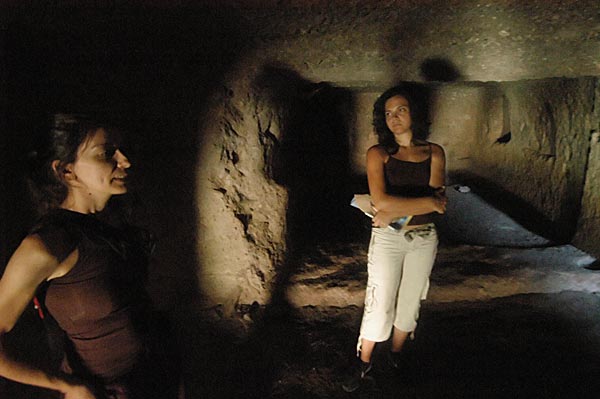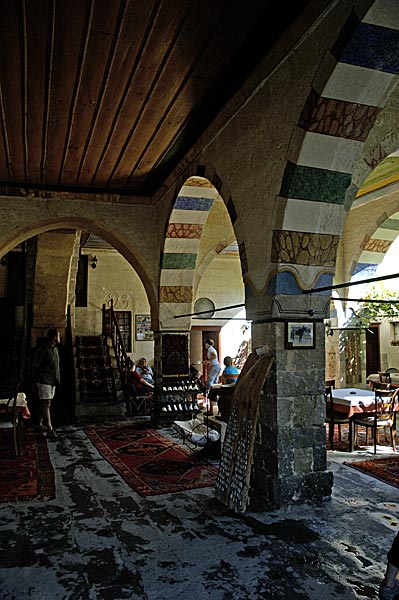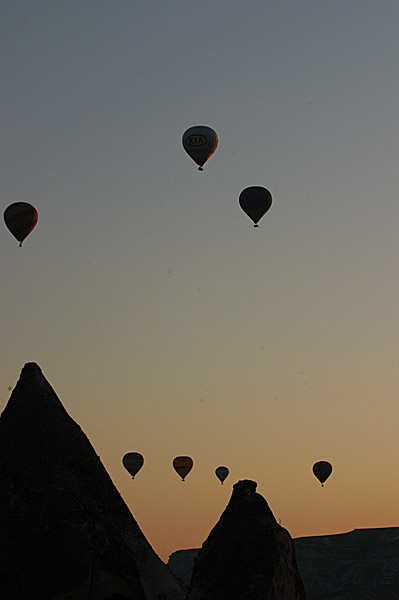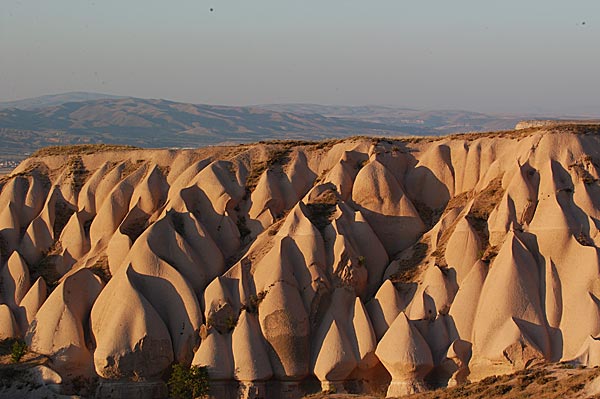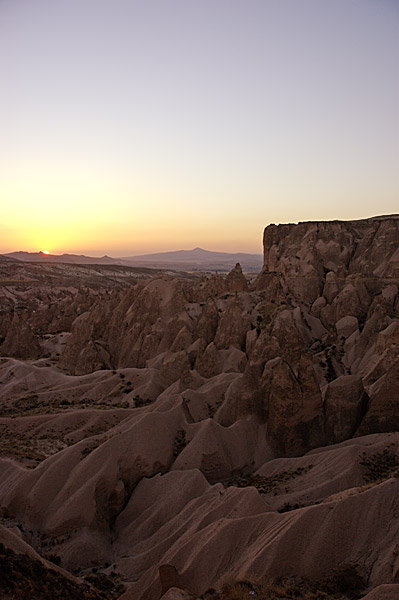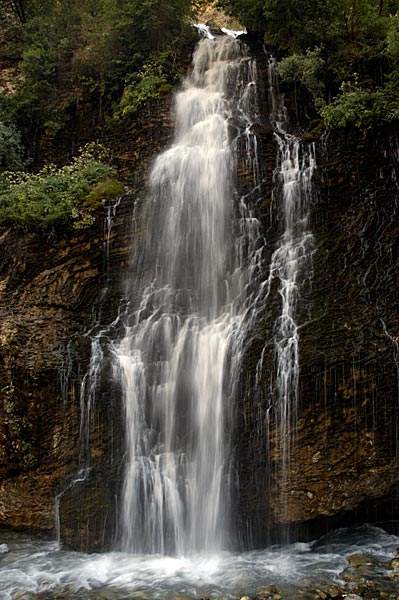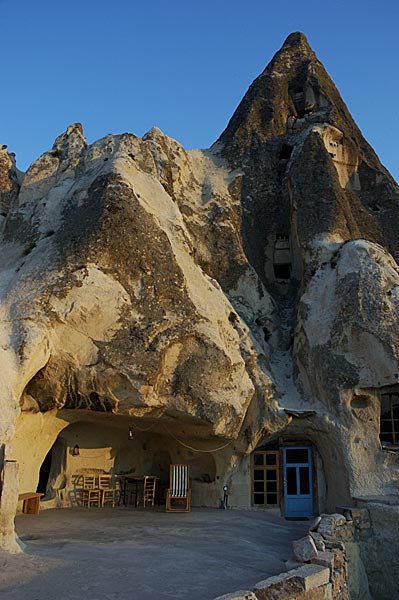By Mike Donkin
BBC, Libya
Libya has recently undergone a dramatic rehabilitation, after spending years regarded as a pariah state by the West. But Mike Donkin finds it still has some way to go before tourists start flocking in.
The first hint of a more worldly Libya comes as you push your trolley through a smartened-up Tripoli Airport.
Along with the green slogans of the Revolutionary State of the Masses like “Partners not Wage Workers!”, hang new ones: “Rent This Space!”
“You are a journalist?” asks the immigration officer. “Welcome to Libya.”
I am staying, like the last time, at a hotel on the seafront.
With its round balconies it looks a bit like a beehive. But there has been a lot of painting done since my last visit.
And while reception is not exactly swarming, there are some British oil engineers and a French archaeological group booking in with me.
They are competing for those rooms that look across a sparkling Mediterranean towards a Europe that is politically closer now than it has been in all the 36 years since Colonel Gadaffi seized power.
There is still the same sharp look from the man in the suit in the lift lobby, though.
So, to the sights. Leptis Magna, my guidebook tells me “is one of the finest Roman cities anywhere”.
Ali, the taxi driver, is solicitous as we set out. “Have you got water? Some sunglasses?”
And then we are speeding east along the coast.
“Libyan people and English people were always very good friends,” Ali says. “But your old leader Mrs Thatcher and Colonel Gaddafi had a big problem. Now you can stay here again and we need the money.”
“And look, they’re building very fast” he says, waving an arm towards cranes and diggers working in a cloud of dust.
The passing scenery is dull. Graceful date palms, but otherwise desert scrub with a scattering of old car tyre rubber.
We do overtake several open trucks, though, each with half a dozen camels, sat heads-aloft and absorbing the bumps of the road with dignity.
Leptis Magna is less than under invasion today.
There is a choice of guides sitting in the shade of a tree. But I make my own way.
Under the towering pillared arch, through the baths built by the Emperor Hadrian, with their marble-flagged floors, their changing rooms and the “laconica” or sweat baths… all wonderfully preserved.
In the forum there is a courtyard with treasures heaped among the thistles and just the sound of birdsong.
Amazingly, so far, I have had Ancient Leptis all to myself.
But now, English voices chatting to their guide.
Bruce, Don, Ruth and Robin, it turns out… late 50s, floppy hats, sensible shoes and determinedly curious.
‘State business’
“So why Libya?” I ask Bruce.
“Why not?” he says.
“Where else have you holidayed then?” I said.
“North Korea,” he replied.
The Libyans they have met, they tell me, have been charming.
The food is great and the prices cheap. But it is different. You cannot travel anywhere on your own.
And any talk of politics is totally taboo.
Bruce deals in cars back in Solihull and recalls how he asked Mohammed, their guide, why some number plates in Libya were white and others yellow.
“How should I know?” Mohammed snapped back. “That’s state business.”
I had already chatted to Mohammed and found out he had given up his poorly paid job as an English teacher to be a guide.
Then Mohammed asked me what I did.
His face dropped and he switched the topic hurriedly back to monuments.
Libya’s government has its own structures to develop tourism, of course. But there do also seem to be openings for individual initiatives.
Omar is half Italian and he has been living over there, but now he has a mission to show others the homeland he loves.
“We want to get a lot more people here but not mass market tourists like next door in Tunisia,” he says.
Omar’s plan is to take parties to camp out under the stars in the sand dunes of the Sahara on journeys of discovery, with a tribal guide.
But he is a realist.
“Many European friends of mine don’t want to come here because they still think it’s not safe,” he says, “and that is sad because most Libyans haven’t met many foreigners, and they’d love to.”
I went to the beach to meet another tourism entrepreneur. Mou-Awia opened a diving club this summer.
He is only 29, but he has got racks of wetsuits and breathing gear… and lots of ambition.
“There is so much to discover off the coast here,” he says. “You can imagine in World War II Tobruk there are so many things that divers will want to explore”.
Libya may lack the resorts, the infrastructure just now, Mou-Awia says, “but just give us five years. We’re even starting our own website to promote everything!”
What about Libyan nightlife, then? Well, there is not much of that yet.
Tripoli’s once so-cosmopolitan promenade does have bars where local men, and ONLY men, sip mint tea and puff water pipes and clack-clack dominoes.
These are early days.
Libya is opening its doors, and there is much to see.
But after more than three decades, when surveillance was the norm, old habits do die hard.
And it can be difficult to relax on holiday if you feel you are being watched


